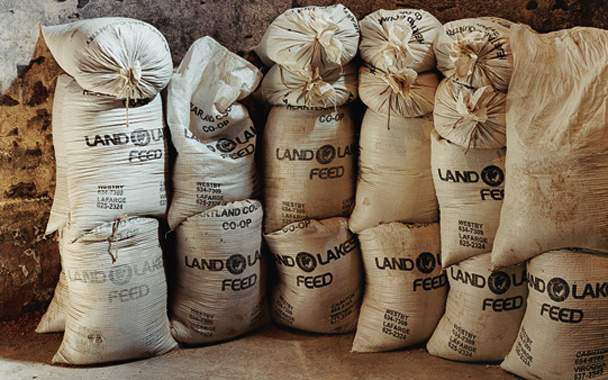Mark Kastel likes to say that he’s a man who was cured by illness.
In the early 1980s, his life seemed to be on the right track. He’d risen up the ranks at J.I. Case, a farm- and construction-equipment firm based in Racine, Wisconsin, and—by the time he was 30 years old—ran his own agricultural implements company. But he was feeling weak, had a systemic problem related to yeast, and was struggling with debilitating migraines. An allergist’s diagnosis further jolted his sense of well-being. The doctor told Kastel that his immune system had been injured, most likely by exposure to agricultural chemicals. At that point, he says, “It became very difficult, ethically, to continue to sell four-hundred-horsepower tractors with chemical sprayers to monocrop producers.”
The conventional-farming community had messed with the wrong guy. After his physician prescribed a strict diet of organic foods, Kastel slowly became reenergized and decided to get back to work. But this time he’d dedicate himself to organic farmers. For nearly 20 years he ran a consulting business assisting farm cooperatives with their direct-marketing efforts. Then, in 2004, he cofounded The Cornucopia Institute with Will Fantle, an environmental reporter. The organization has become increasingly effective and is currently one of the most aggressive organic-industry watchdogs in America.
Primarily funded by donations from organic farmers and grants from nonprofit organizations, Cornucopia has a staff of seven and hundreds of volunteer members spread out across the country. But if there’s a headquarters, it’s Kastel’s 160-acre organic farm in southwestern Wisconsin. There, in a house full of cats and with a yard full of dairy cows, he lives a life similar to that of the small farmers he champions. Lately, however, Kastel has come to wield the same power as the huge corporations he battles. As the director of Cornucopia’s Organic Integrity Project, he’s uncovered several high-profile instances of “greenwashing,” the practice—common among large corporations—of producing organic goods while ignoring the tenets and values of the organic movement.
In 2006 he released his “dairy scorecard,” a report that brought to light several unsettling details about some of the country’s most popular organic brands. Photos of dairy farms—some taken surreptitiously by volunteer members who simply showed up at the dairies unannounced, others taken by Kastel, who snapped them from just outside the farms’ borders, under the close scrutiny of security guards—revealed rows of cows restricted to tight pens, mountains of manure, and acres of lush, green, cowless pasture. Cornucopia posted the photos of these factory-like conditions on its website—along with a sarcastic caption or two (“Jam packed [happy] cows”)—and gave the story to The New York Times. As a result, multiple lawsuits were filed against Aurora Organic Dairy, one of the largest producers of organic milk in the country, in which the company was accused of failing to meet organic standards.
A few months later, Kastel and some of his coworkers discovered that Wal-Mart seemed to be deliberately placing conventional products on their organic-foods shelves. Cornucopia tried to play nice and quietly sent a letter to the big-box store, but Wal-Mart didn’t respond. Several months later, noting that the problem was still widespread, Kastel began posing as a shopper in stores and stealthily taking photos of the conventional products on shelves labeled “organic.” Cornucopia then put the pictures up on their website and filed a complaint with the USDA. The agency agreed that the shelf tags were potentially confusing to customers, and although Wal-Mart defended its organic program, the misshelvings stopped.
Kastel’s work isn’t limited to big corporations, though. This summer, when it was revealed that Organic Valley—an organic-dairy cooperative near the top of Cornucopia’s dairy scorecard—was buying milk from a questionable organic farm, Kastel sadly but loudly spread the word. For their part, Organic Valley says the dairy in question was never a co-op member and they had already planned to replace it.
Despite being “the watchdog that some of these ‘corporados’ don’t like,” as he understatedly puts it, Kastel keeps moving ahead. In May 2008, Cornucopia, which recently released an updated dairy scorecard, filed a complaint with the USDA, claiming that a dairy supplying milk to the Horizon Organic label was not in compliance with federal organic regulations. (Horizon says that the farm’s organic certifier found the claim to be without merit, while the USDA declined to comment on an open investigation.) “We all live and die—whether it’s a big giant corporation or a small family farm—by the reputation of the organic label,” he says.
Having been saved by organics, Kastel should know.



 Pinterest
Pinterest






